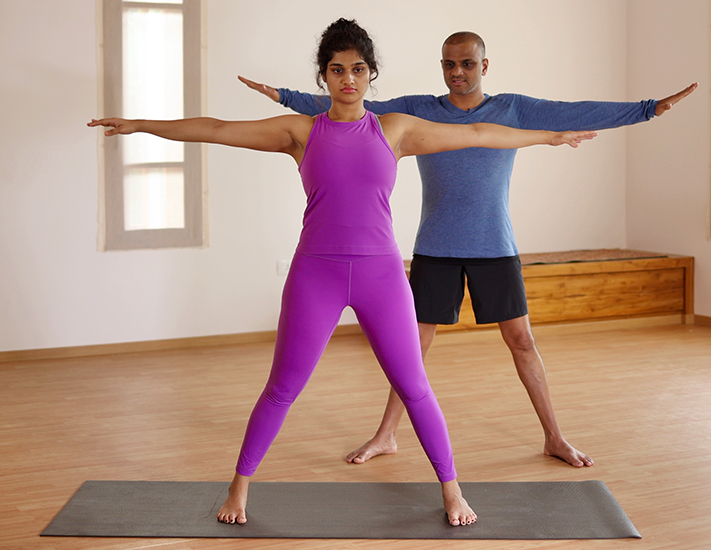Dear John,
Can mindfulness techniques or a meditation practice help me achieve my goals in the new year?
Sincerely,
Resolute
Dear Resolute,
This is such a meaningful and timely topic. I am a deep believer that the path of mindfulness can provide you with effective resources to achieve your goals this year. In this article, I will draw from applications of mindfulness in organizational settings to discuss how this technique can help you stay focused on your endgame.
I acknowledge this is a very large topic, and I am limited in how much I can get into in a short article. Therefore, I am going to highlight a few conditions that I believe need to be present for accomplishing goals.
The first is that you need to know what your goals are. Seems simple enough, but many people struggle with this. As you prepare for the new year, I suggest you take time to reexamine your values and where your passions lie. It is helpful to look across all domains of your life, including personal, professional, physical, emotional, intellectual, spiritual, and so on. If you’re not clear about your goals, meditation can help you. A sacred pause and reflection is likely most needed for you in your life right now. As you sit with this question and listen for the answer, it may get things moving forward for you. Spending regular time with this type of inquiry will help deepen the process.
Related: A Meditation on Intentions for a New Year
After you list your priorities, rank them in order so that you know where to specifically direct your focus. As human beings, we are all confronted with limited time and energy. Therefore, we must remember that, ultimately, everything is connected. This concept means that shifts in one area of your life will likely bring shifts in others. Once you have your organized list, identify your starting point. Break down bigger goals into smaller, actionable steps and figure out what is the easiest way to get the momentum going.
The second condition is to train yourself to notice when your focus has waned. One symptom of reduced focus is mind-wandering. When your mind is not focused, goal-directed behavior diminishes. Researchers suggest that mindfulness may be an effective antidote to a wandering mind. For instance, one study published in the journal Emotion demonstrated a relationship between higher levels of dispositional mindfulness and lower levels of mind-wandering. They also found that eight minutes of mindful breathing attenuated mind-wandering. This suggests the importance of establishing a daily practice in order to train focused attention. With more efficient focus, you will likely find yourself moving forward with greater ease and freedom.
A third condition is to ditch multitasking. Research has shown that media multitasking is associated with higher depression and social anxiety symptoms. In my clinical experience, I can say that clients who experience depression and anxiety find it very difficult to accomplish goals. Minimizing behaviors that feed these unhelpful states of consciousness is in service of goal completion. Mindfulness has also been shown to effectively reduce symptoms of anxiety and mood problems among clinical populations.
Related: 3 Ways Meditation Puts You in the Success Mindset
Even though you still may be able to finish disrupted tasks efficiently and at a similar level of quality, researchers have found that we tend to make up for interruptions by working faster. This has numerous consequences, such as increased stress, frustration, time pressure, and effort. Mindfulness, through its emphasis on single-pointed focus, trains the practitioner to stay focused on the task at hand and minimize task switching.
Furthermore, researchers found that those trained in meditation stayed on tasks longer, made fewer task switches, and reported less negative emotion after they completed their task as compared to their counterparts, trained in relaxation. Improved memory for the tasks performed were also found both in those trained in meditation and relaxation. These findings clearly suggest the importance of developing a regular mindfulness practice in order to maximize the opportunities to achieve more with ease and gracefulness.
My perspective is that the more we stay connected to our values, the more we can offer to this world and receive back. I am reminded of the poet Rumi’s words, “Now is the time to unite the soul and the world. Now is the time to see the sunlight dancing as one with the shadows.” Mindfulness is a practice that keeps us connected to ourselves and our community. Mindfulness gives us the mental and emotional clarity to draw from all our inner and outer resources to move forward and accomplish with integrity.
The new year is a beautiful time to clear open the psychological and emotional space needed to create a vision and forge ahead. We, as human beings, are always an unfinished project. We must remember—and stay connected to—our creative power and our natural belongingness. Even when we are confronted by great challenges (and life has no shortages of them), we must remember to dance between sunlight and shadow, becoming one.
I invite you to hold the intention in this new year to accept all that comes, and from that place of stillness and love within your own heart, to meet each moment with dignity, courage, and authenticity. Trust in yourself. Trust that the path of mindfulness will allow your authentic self to bloom and your muscles of courage to flex and move you toward your goals. There are many great resources and meditations on Sonima to get you started with a practice.
I wish you the best in the new year and thank you for writing in.
Many blessings,
John











Comments (0)